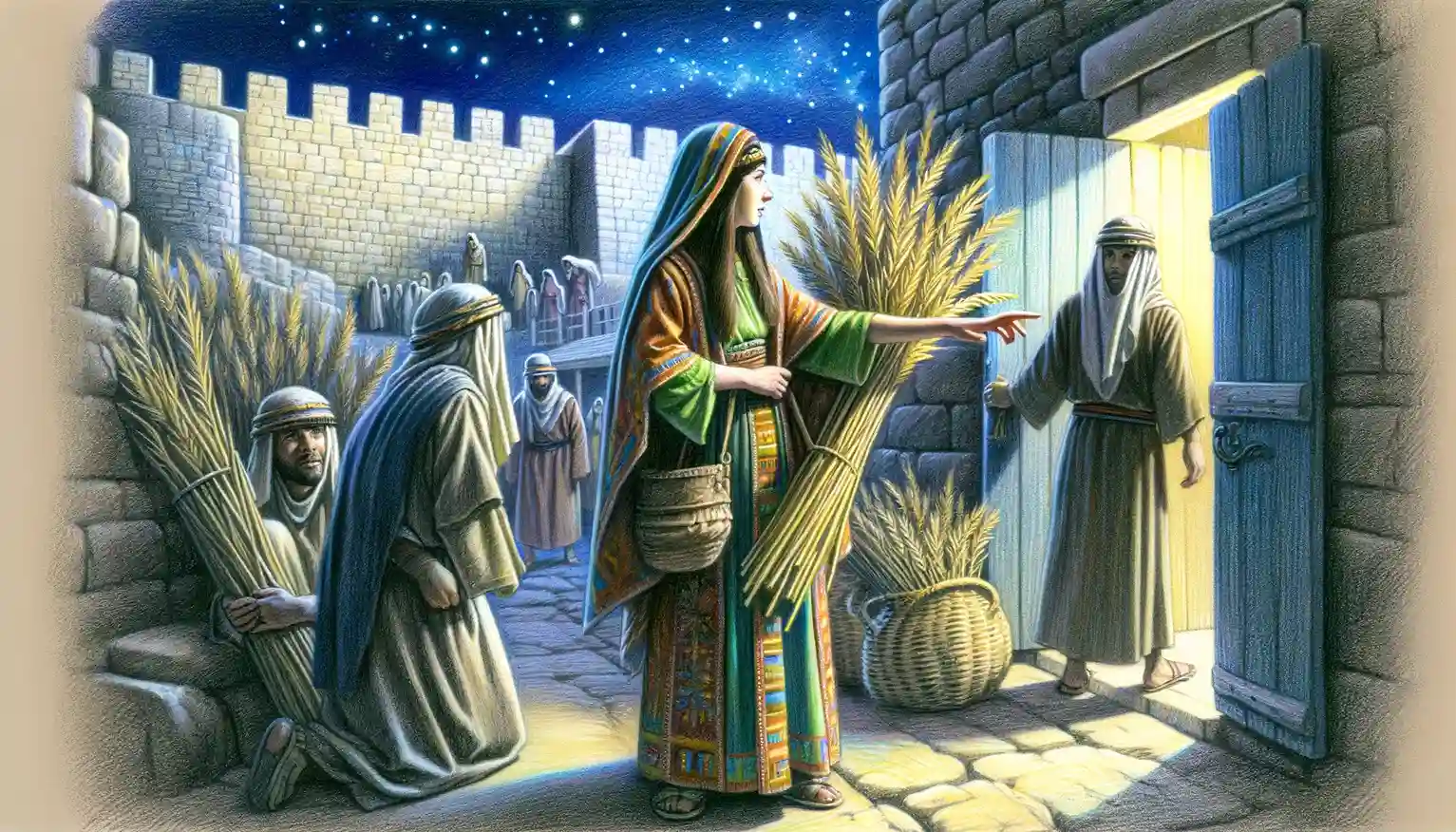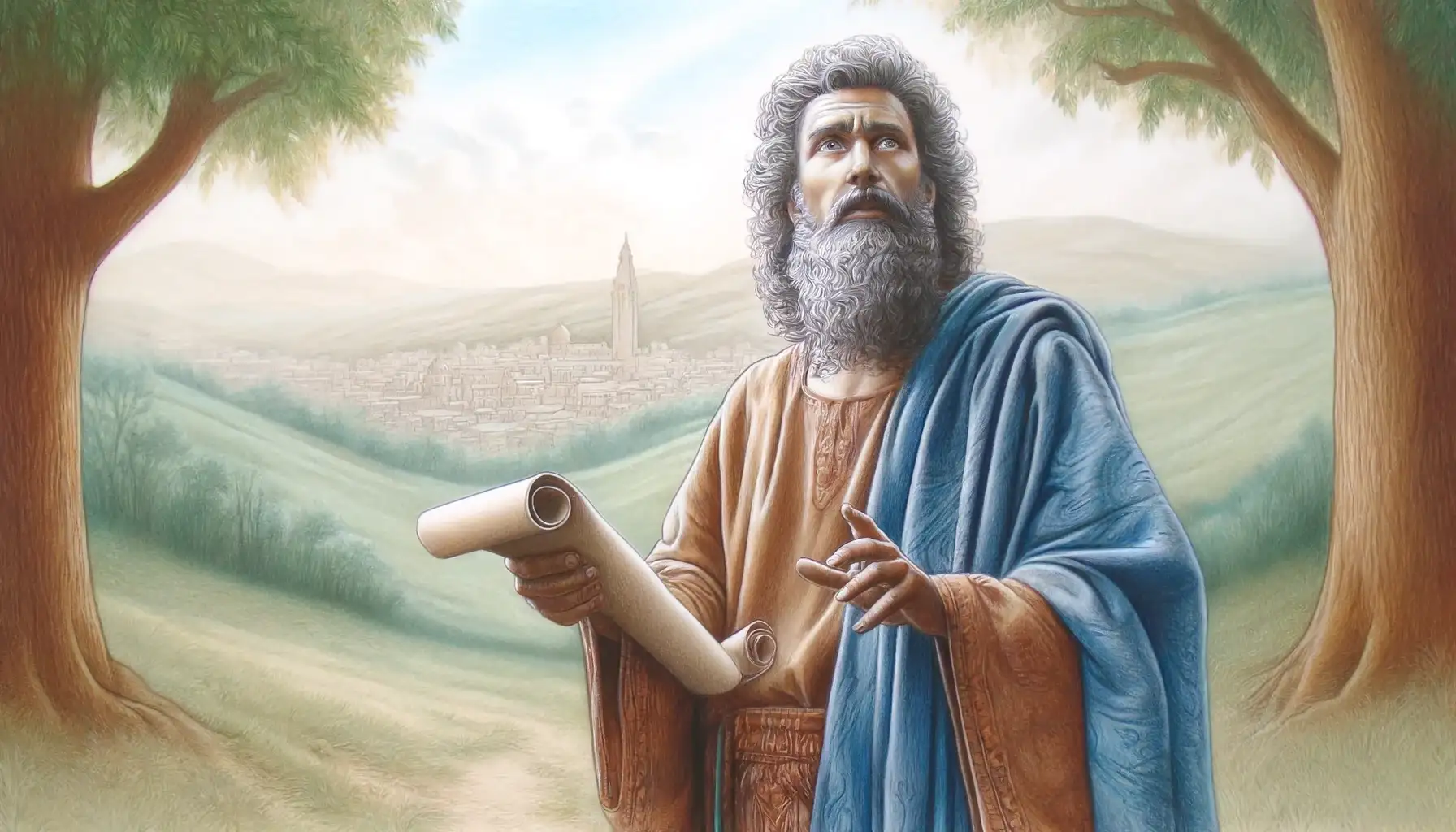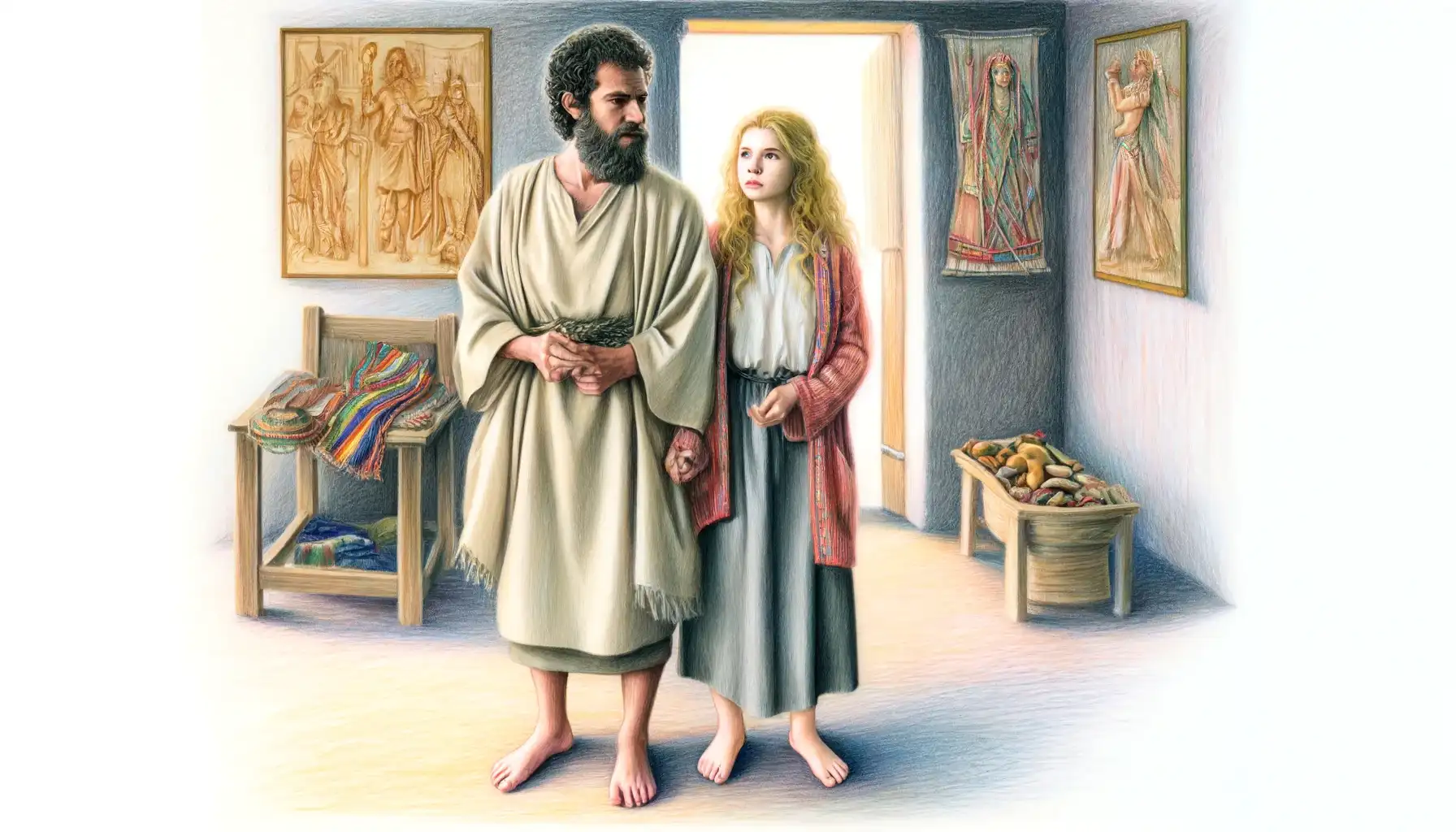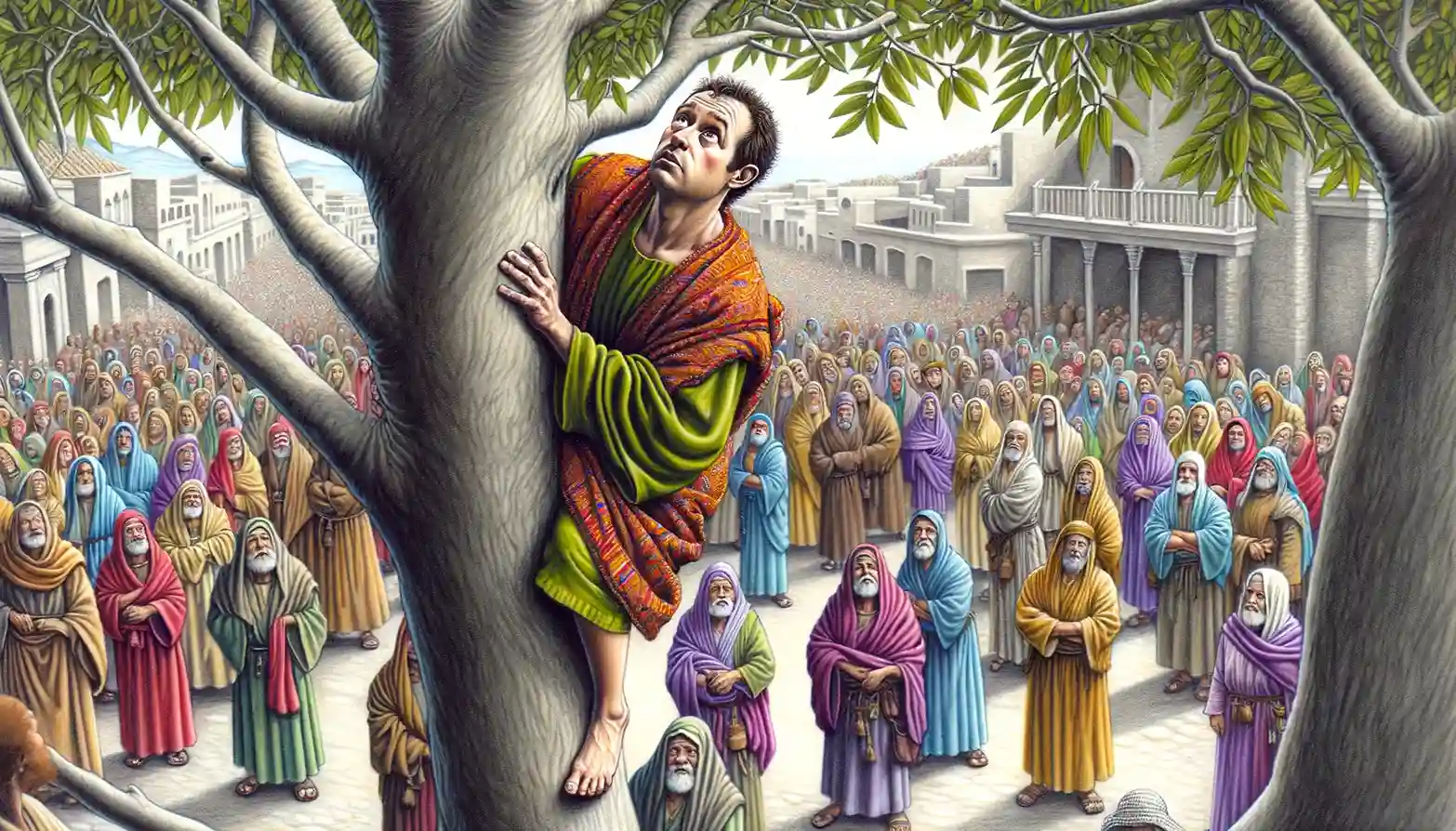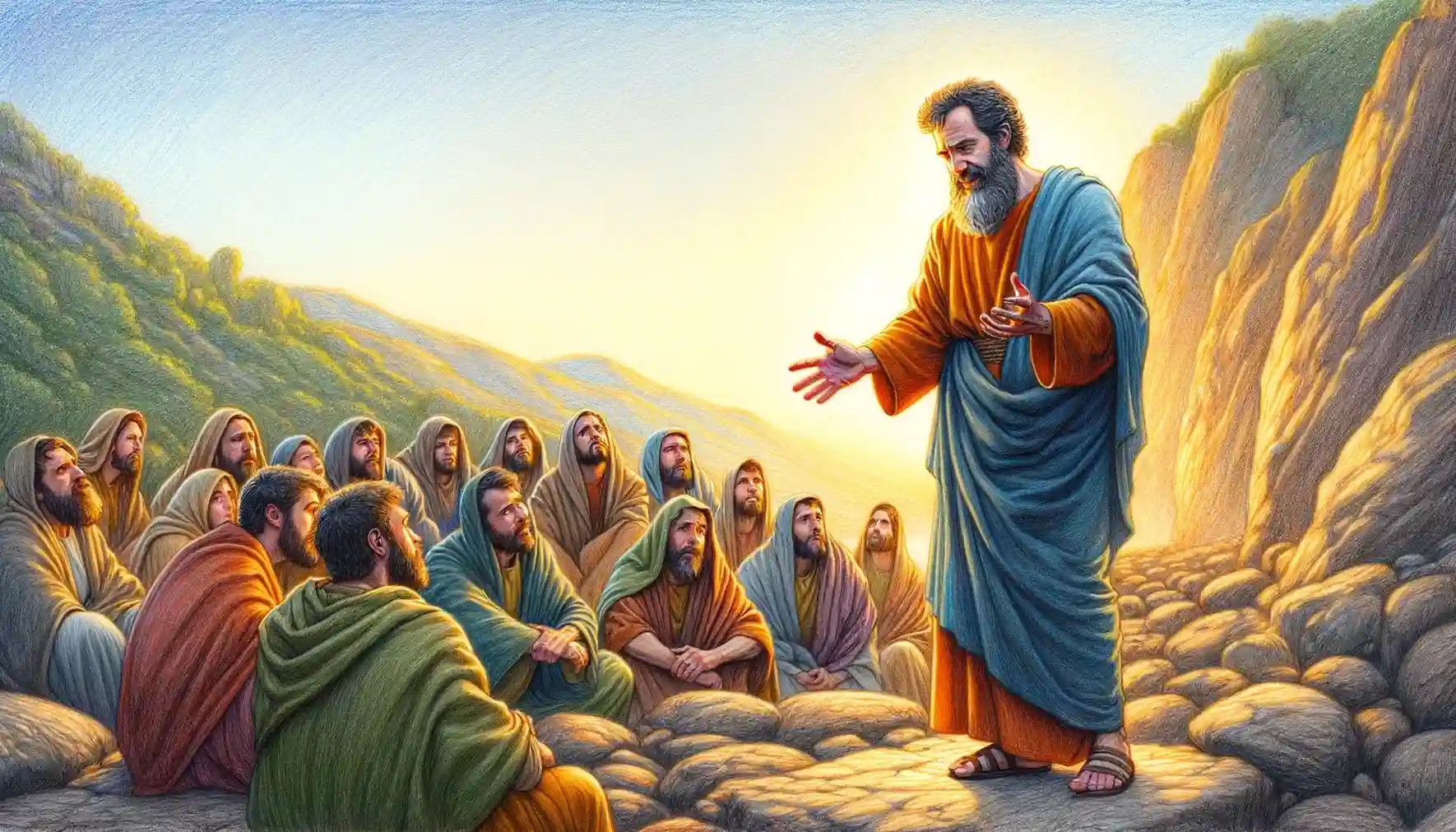Samson, a Judge of Israel known for his incredible strength linked to his Nazirite vow, waged conflict against the Philistines, and despite his eventual betrayal and imprisonment, achieved a final act of redemption by bringing down the temple of Dagon, killing many Philistines.
Ruth, a Moabite woman known for her loyalty to her mother-in-law Naomi, married Boaz in Bethlehem and became the great-grandmother of King David, highlighting themes of devotion, redemption, and divine providence.
Rahab, a prostitute in Jericho, helped Israelite spies and expressed her faith in God, leading to her and her family’s salvation during Jericho’s conquest; she later became an ancestor of Jesus, illustrating the power of redemption and God’s inclusive grace.
Isaiah, a major prophet in the Hebrew Bible, is known for his extensive prophecies about the coming Messiah, detailing His birth, ministry, suffering, and triumph, and emphasizing themes of judgment, redemption, and hope.
Hosea, a prophet of the northern kingdom of Israel, was instructed by God to marry a prostitute named Gomer to symbolize Israel’s unfaithfulness, conveying themes of judgment, repentance, and God’s enduring love and desire for restoration.
Eve, the first woman according to the Bible, was created from Adam’s rib and is central to the Genesis narrative, playing a key role in the events of the Garden of Eden and the onset of human sinfulness.
The Parable of the Lost Son in Luke 15:11-32 masterfully illustrates the profound themes of repentance, divine grace, and reconciliation, portraying a father’s boundless mercy as a reflection of God’s unconditional love for sinners, and challenging the faithful to embrace forgiveness and celebrate the redemption of the lost.
The Book of 1 Peter offers enduring encouragement and exhortation to persecuted believers, emphasizing their identity in Christ and calling them to live holy lives, rooted in hope and grounded in the grace of God.
The Letter to Philemon exemplifies Paul’s call for reconciliation and forgiveness, urging Philemon to receive his runaway slave, Onesimus, not as a mere servant, but as a beloved brother in Christ.



